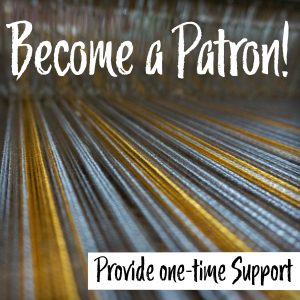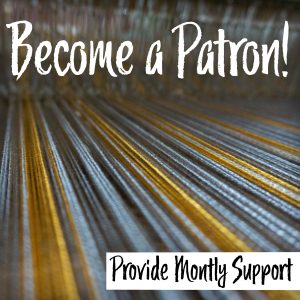November 19, 2020 @ 7:PM EST Streamed live to YouTube & Facebook.
Technology failure!
We had an echo that we couldn’t solve in our stream so we are recording locally and it will be posted this week.
The Bauhaus, an acclaimed school that embraced the principle of equality among artists and the arts alike, has continued to influence and impact American art long since it’s closure. The weaving workshop in particular was a place of developing aesthetic and supporting innovative teaching methods. Many weavers have “On Weaving” by Anni Albers sitting in their bookshelf.
But, is that the epitome of weaving advancement? Are there other weavers who have pushed the boundaries of design and theory? Our upcoming round table, “Beyond the Bauhaus”, we are talking with Evee Erb, Tegan Frisino, Lilly Marsh, and Justin Squizzero with Eric Frisino as the moderator, different influences for our work. During the discussion we will explore inspiring weavers, techniques and methods, and other sources of inspiration.
We hope you join our conversation as we explore “Beyond the Bauhaus” to highlight influences that have been overshadowed by the design super house that is the Bauhaus School.
Panelists
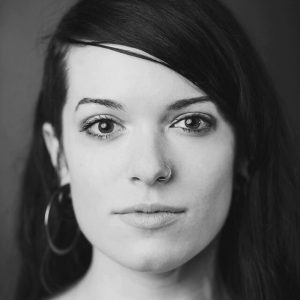
Evee Erb:
Erb is a nationally award-winning American artist who graduated from the Maryland Institute College of Art (MICA) in 2016 with a BFA in Ceramics. While attending MICA, she also studied Illustration and Textile Design. Additionally, Erb studied ceramic sculpture in Florence, Italy at SACI College of Art and Design. After receiving her degree, Erb returned to her hometown of Durham, NC where she has worked at the North Carolina Museum of Art, taught workshops at a variety of art centers, served on curatorial jury panels, and given lessons and artist talks at various institutions.
In 2017 she launched Threadbarren, a clothing label consisting of one of a kind garments designed using hand-spun, hand-dyed, and hand-woven textiles.
Erb has had her work exhibited nationally and internationally. She works in a variety of media using traditional painting, sculpting, and weaving techniques to combine form and surface with dynamic uses of material. Her works reside in private collections across the United States.
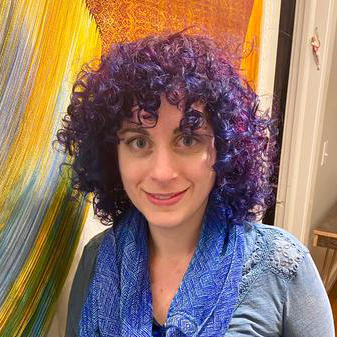
Sydney Sogol:
Sydney Sogol is a fiber artist who grew up in Chapel Hill, North Carolina. She is a handweaver, creating unique, one-of-a-kind luxury wearable art and woven paintings. She draws inspiration from her years of studying art, ornithology, and marine biology. Sogol discovered her love for all things yarn when she was at Earlham College obtaining a BA in Weaving and a minor in Biology. She knew she wanted to pursue her passion for weaving and attended East Carolina University, where she received her Masters of Fine Art with a concentration in Textile Design.
Each piece she creates in her home studio pays tribute to a single creature’s unique beauty and story. To achieve this, she hand paints and dyes yarn that mimics the gorgeous colors found in birds and ocean creatures. Sogol then combines these colors with the complex, original patterns she designs for her 24,16 and 8 shaft looms.
Sydney loves to share her passion for fiber arts by teaching about the expansive techniques that can be done using different fibers. She taught classes at East Carolina University, and continues to teach both private and group classes and is the founder, designer and weaver of Syd’s Threads. Sogol has shown locally, and nationally in juried and invitational shows, she currently resides in Durham, NC.
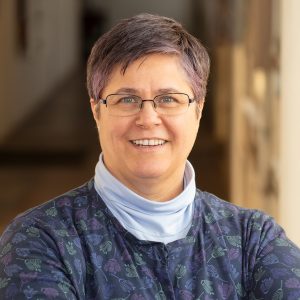
Lilly Marsh:
Marsh is a production weaver whose work is directly connected with her active role in the fiber shed community. She views the weaving and textile world through the lens of her PhD in American Cultural Studies at Purdue University, with a focus on American Craft in the 20th Century. Out of her studios in Queensbury and Glens Falls, New York, she produces fine scarves, shawls, and simple garments, as well as throws and blankets. Her work primarily showcases the beautiful qualities of naturally colored, regionally sourced wool, but she also has used silk, tencel, and cotton in her work.
She is a prolific weaver, who utilizes her drive for cultural and historical context to engage fully in the fiber community. Her work is grounded in local farm and fiber community activism in support of local fiber, local yarn, and local cloth. She is also a founding member of the Hudson Valley Textile Project, a regional consortium of fiber farmers, processors, artisans, designers, and vendors. HVTP works to support and strengthen an environmentally responsible and economically sustainable fiber supply chain from farm to finished object.
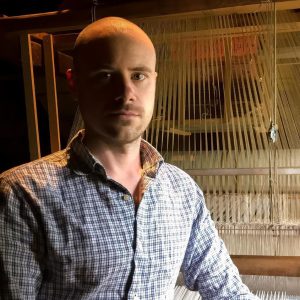
Justin Squizzero:
Squizzero challenges modern definitions of progress by creating functional textiles that celebrate the natural world and the dignity of human labor. Echoing a time when utilitarian objects were entirely handcrafted, his work connects material, maker, and user across time and place. Squizzero’s venture, The Burroughs Garret, draws on the textile traditions of his northern Vermont home, marrying natural dyes and fibers with a reserved aesthetic rooted in early New England. Produced on his 19th-century farm using 200-year-old hand looms, Squizzero’s textiles examine the role of handcraft in a post-industrial society, questioning the human experience in a digital age.
Together, we will be examine how textiles have been valued over time, and how that has impacted how they are viewed in society today.
Let us know below if you would like to be notified when it is up on the site for members.
Consider Supporting the Society
This event is free, but keep in mind that it cost money to run, so with that in mind if you feel as though we offer content worth paying for, and would like to see more events like this in the future, please give what you can to help us put on more events and expand our offerings.

